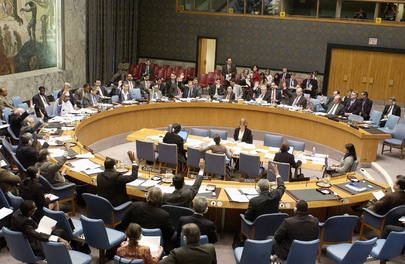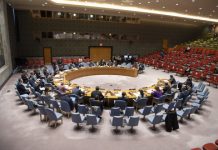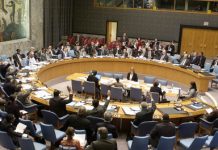16 years – that is how long Dah had to live with the agonising condition, undergoing eight different surgical procedures before finally getting the fistula repaired.
In recognition of the over 500,000 women like Dah who are forced to endure what is a highly treatable condition, the International Day to End Obstetric Fistula is being marked on Friday.
Obstetric fistula is a medical condition which refers to the development of a small hole between the birth canal and the bladder or rectum, leading to leaking urine or faeces.
This year’s theme, “Her Health, Her Right: Shaping a Future without Fistula” will seek to make progress towards the goal of eliminating fistula by 2030.
Women’s bodies become battlegrounds — not only through sexual violence but through deliberate denial of reproductive rights and health
– Sima Bahous, Executive Director of UN Women
“Women’s bodies become battlegrounds — not only through sexual violence but through the deliberate denial of reproductive rights and health services” said Sima Bahous, Executive Director of UN Women.
‘A silent crisis’
It is often brought on by prolonged or difficult childbirth. Most of the half million women suffering the condition live in the Global South.
Many women who have a fistula experience social isolation and exclusion brought on by leaking urine or faeces. This, in turn, can lead to depression and exacerbated poverty.
Kambiré, a small business owner who lives in Bouna, lived with obstetric fistula for 23 years. She even had another child before getting medical assistance.
“I preferred to isolate myself because of the fistula,” she said. “I couldn’t sit for long for fear of getting wet.”
She only learned that it was treatable when listening to a radio show, inspiring her to go to a UN sexual and reproductive health agency (UNFPA)-supported hospital for treatment. Now, she owns a small pot-making business.
Kambiré had obstetric fistula for 23 years and now owns her own pot-making business.
Entirely preventable and treatable
UNFPA set the goal of elimination by 2030 – which seems doable given that, as a medical condition, it is both completely preventable and fully treatable.
Between 2003 and 2024, UNFPA supported nearly 150,000 surgical fistula repairs, 4,400 of which alone happened in Côte d’Ivoire for women like Dah and Kambiré.
Catherine, a mother of two in Bouna, also received medical assistance from a UNFPA-supported hospital.
“Now that I’m healthy, I’m happy. I can run my business and spend time with my friends,” she said.
Nevertheless, obstetric fistula has remained stubbornly persistent throughout the world due to disparities in global health systems.
UNFPA says that midwives are key to preventing fistula, and other childbirth injuries. However, there is a global shortage of over 900,000 midwives, 500,000 of which are in Sub-Saharan Africa.
Reproductive health education and empowerment are similarly essential to addressing and preventing obstetric fistula.
“The most effective shield we can offer women and girls is their own power, voice and leadership,” Ms. Bahous said.
Networks of solidarity
After Dah received successful treatment for her obstetric fistula, she, like Kambiré, began a seasonal food business through which she prepares and sells produce.
She has also banded together with other fistula survivors from Bouna to enhance community awareness and reduce stigma.
“When women lead, they protect not only themselves but their families and communities … The impact is transformative,” Ms. Bahous said.
Source of original article: United Nations (news.un.org). Photo credit: UN. The content of this article does not necessarily reflect the views or opinion of Global Diaspora News (www.globaldiasporanews.net).
To submit your press release: (https://www.globaldiasporanews.com/pr).
To advertise on Global Diaspora News: (www.globaldiasporanews.com/ads).
Sign up to Global Diaspora News newsletter (https://www.globaldiasporanews.com/newsletter/) to start receiving updates and opportunities directly in your email inbox for free.





























